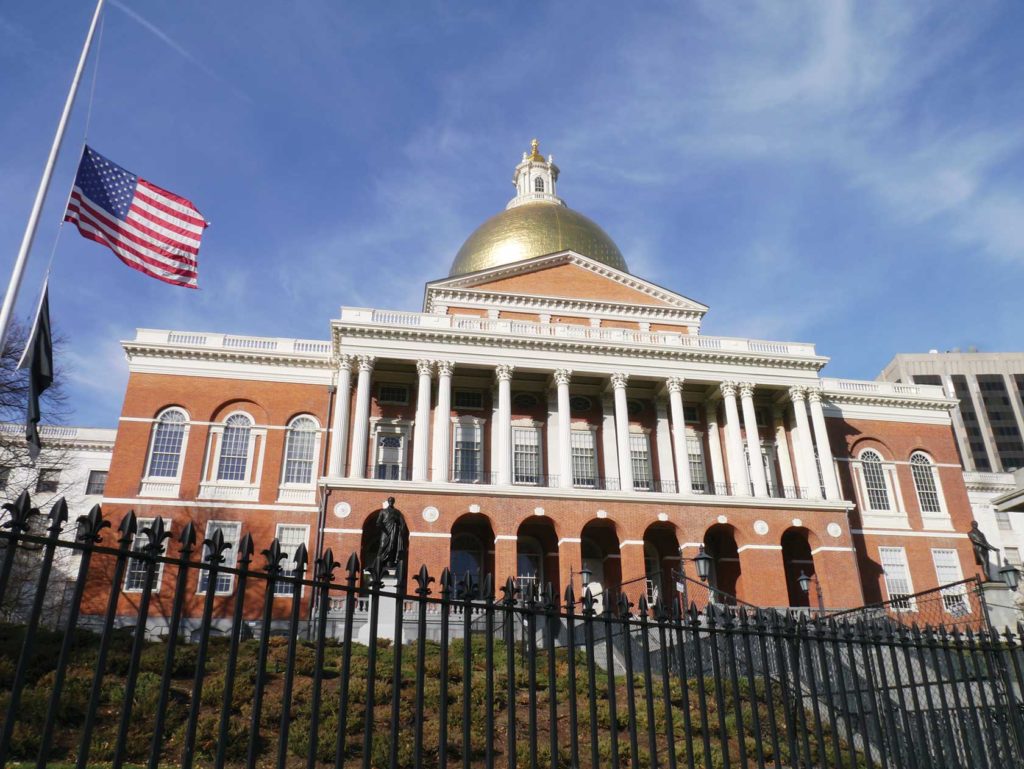
After a marathon legislating session over the weekend, Massachusetts lawmakers have a slew of bills headed to the governor’s desk for final approval. However, while members of the Massachusetts Black and Latino Legislative Caucus scored some victories, some of the legislation the group backed failed to make it over the finish line before both body’s sessions ended July 31.
In the win column is a climate and energy bill that seeks to increase use of electric energy and offshore wind and has strong equity components fought for by Rep. Liz Miranda, a member of the caucus.
According to Miranda, an amendment she proposed requires diversity and inclusion plans for projects to be approved; encourages coordination between state agencies, including the Supplier Diversity Office (SDO); and increases accountability for diversity, equity and inclusion goals by establishing a system for measuring and reporting progress.
“This amendment was shaped by those in the community, like Reclaim Roxbury, Greater Grove Hall Main Streets, and ACE [Alternatives for Communities and Environment], because our community and all communities of color can generate wealth opportunities in this industry, we can generate opportunities for prospective entrepreneurs and workforce development to create a new sector in the workforce,” she said in a statement.
The legislation is now in Baker’s hands, who added his own amendments, including getting rid of Massachusetts’ offshore wind price cap.
Also passed up to the governor was a bill to introduce cannabis reforms, including a reduction of the fees charged to cannabis sellers, direction of tax funds to benefit disenfranchised cannabis entrepreneurs, language to expunge old marijuana convictions and a cannabis café pilot program.
Recreational marijuana use was legalized by the commonwealth in 2016, and while businesses selling cannabis have popped up across the state, few of those are owned by people of color. According to the Cannabis Control Commission, only 8% of businesses with approved licenses are minority-owned.
In addition, a Boston Globe investigation conducted last year showed that thousands may still be serving sentences for marijuana-related convictions, despite efforts to free them.
The cannabis bill was co-sponsored by caucus member Sonia Chang-Diaz, who wrote on Twitter, “This bill will be a game-changer for racial equity in the industry.”
Other legislation that moved forward over the weekend included an $11.3 billion infrastructure bill that includes money to improve the MBTA, a bill legalizing sports betting in the Bay State and a bill that would increase access to mental health services in the Commonwealth.
The Legislature also voted in the early hours Monday morning in favor of legislation to combat the Supreme Court ruling that makes it harder for states to implement gun control. The Massachusetts bill allows lawmakers to institute personal interviews for firearm licenses, and bars those with pending protection orders from obtaining firearms.
One of the biggest pieces of legislation that failed over the weekend was a tax bill that would return nearly $2 billion in direct relief to residents. Lawmakers balked at the bill after Baker cited a 1986 ballot measure that would automatically trigger $3 billion in tax rebates.
Some pieces of the relief package have eked through to be discussed in committee, like money set aside for hospitals, environmental infrastructure, economic development and housing. However, stimulus checks are on hold for the time being.
Additionally, legislation pushed hard by several members of the Black and Latino Legislative Caucus that would allow free phone calls for Massachusetts inmates met its demise in the State House over the weekend. After the legislation supporting the free calls was passed earlier in the budget process and sent back to the governor’s desk, Baker added an amendment adding in a so-called “dangerousness law” and threatened to veto the legislation without this rider.
Baker’s dangerousness law would make it easier for courts to hold pre-trial defendants if they are deemed a danger to the public and would expand the list of offenses that are deemed dangerous.
Members of the Black and Latino Caucus held a press conference Friday slamming the move by the Governor and the impacts it would have on people of color.
“It is abhorrent and an abomination that he would even try to tie this to no-cost calls, when it is the lifeline that our families are able to connect with those on the outside, and data and statistics and study after study show that when there is family contact, it reduces recidivism,” Rep. Brandy Fluker Oakley said Friday.
In a statement sent via email, Miranda also criticized Baker, saying “I’m proud the House rejected the Governor’s amendment to expand the dangerousness laws, but I’m shocked at the Senate’s adoption of the amendment. You cannot say we are against a racist criminal legal system if you vote to strengthen the power of that systemic racism.”
Lawmakers will have the opportunity to continue chipping away at some pieces of legislation as informal sessions continue throughout January.






